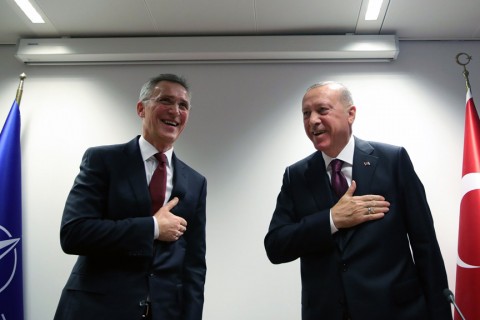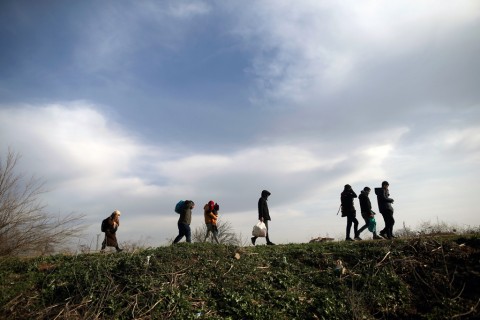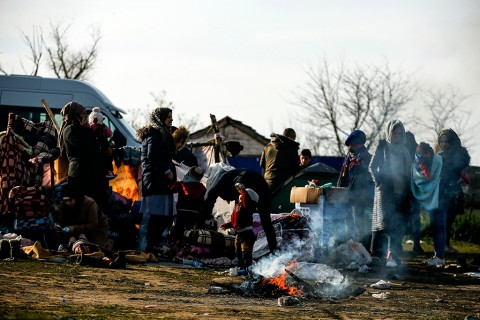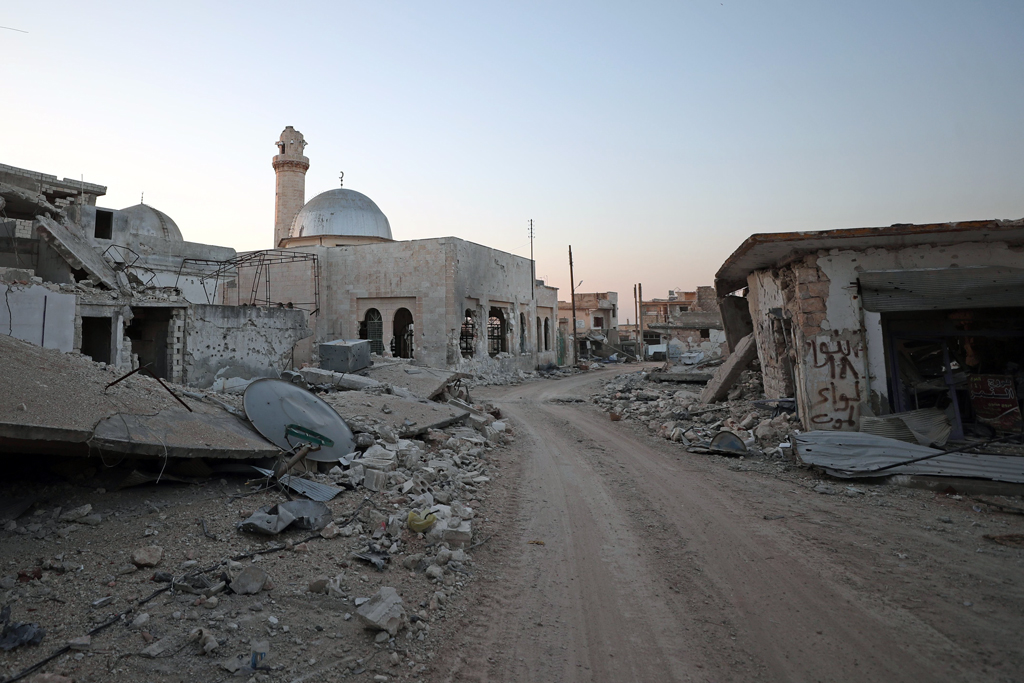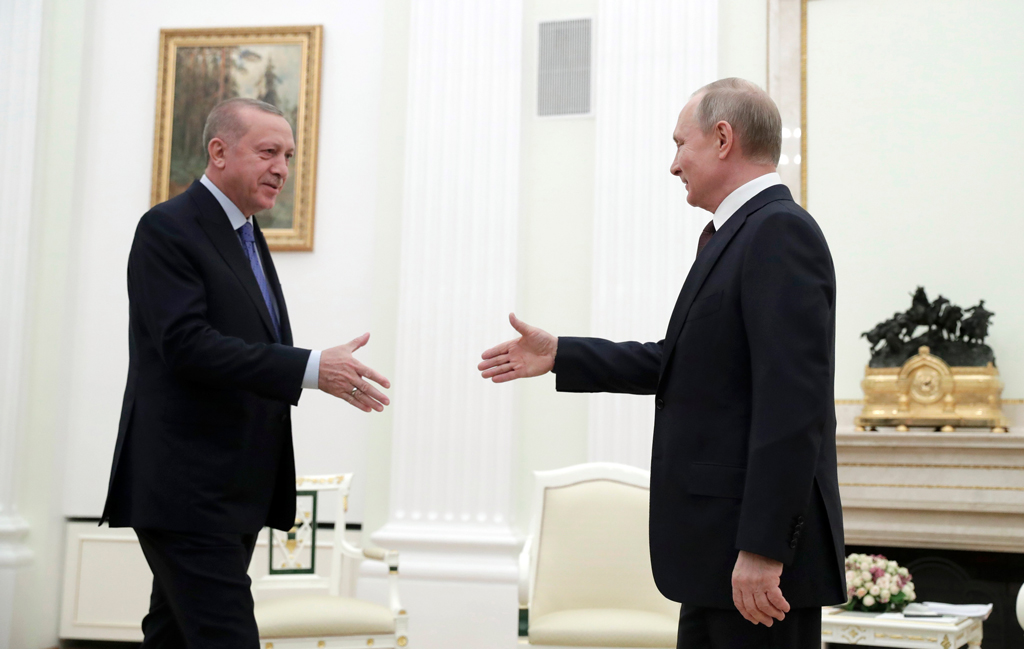Idlib
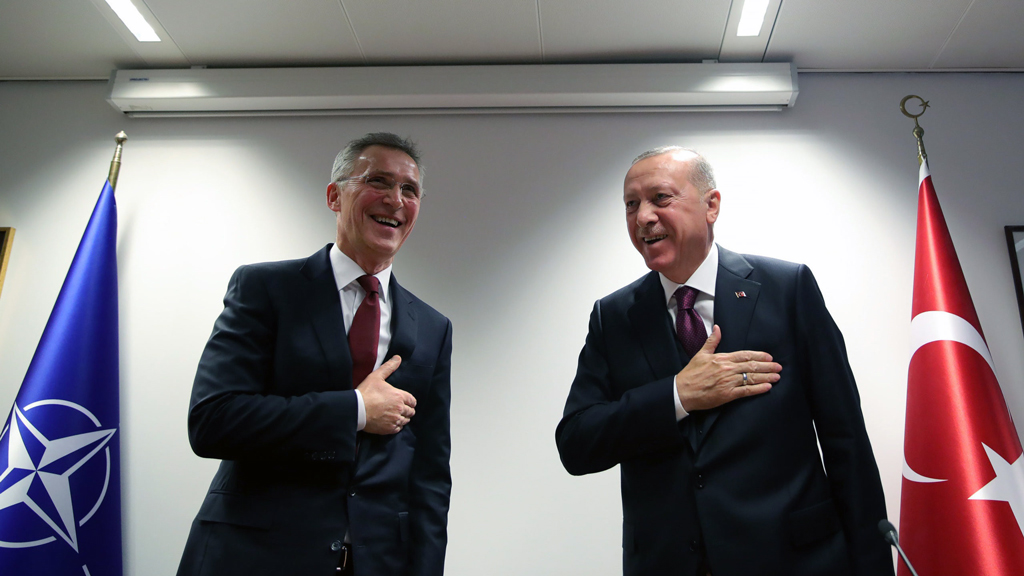
Diplomacy in the time of coronavirus
| OpinionIt’s fair to say the world is more than fixated on the COVID-19 outbreak. The …
-
Opinion
Diplomacy in the time of coronavirus
By Burhanettin DuranIt's fair to say the world is more than fixated on the COVID-19 outbreak. The fear of illness unites us all. We are watching the virus spread and adapting our daily lives by taking precautions accordingly. Society’s current concern over contracting the disease is unlike that of any previous security concern
-
Opinion
Can EU be part of the solution for refugee crisis?
By Burhanettin DuranThe March 5 agreement between Turkey and Russia put an end to the military confrontation in Idlib, Syria. President Recep Tayyip Erdoğan and his Russian counterpart, Vladimir Putin, shook hands on that deal to de-escalate what had become serious bilateral tensions. The 2018 Sochi agreement has thus been updated.
-
Opinion
Europe’s reaction to the new refugee influx
By Muhittin AtamanTurkey has been the main supporter of the Syrian opposition fighting the Bashar Assad regime. Ankara has also diligently protected innocent Syrian civilians living in the Idlib region. It has stood against the atrocities, the Assad regime attacks and the regime's main backers Russia and Iran. On one hand, Turkey has mobilized its deterrent military power in the region against the regime’s future attacks; on the other hand, Turkish officials and civil institutions initiated a campaign to provide food and shelter for civilians. Western countries have been reluctant to get involved in the humanitarian tragedy and security problem in the region.
Bu Konuda Daha Fazla
-
Europe, US unable to grasp Syrian refugee crisis in...
By Yusuf ÖzkırSince the outbreak of the Syrian civil war in 2011, Turkey has faced the gravest problems in the region regarding security, economics and refugees. That picture has not changed. At every turn, a new wave of issues knocks on Turkey’s door. That Europe and the U.S. have not taken initiatives required for a political transition in Syria is a major factor in this. Another leading cause is Russia’s desire to solve the crisis through military force. From the outset, Russia has deployed a course of destruction called the 'Grozny model." It is a policy consisting of three stages: besiege, destroy and rule. Russia has implemented this formula in many areas, particularly in Aleppo, which has wreaked extensive destruction and killed thousands of civilians.
-
What to do now in Idlib?
By Burhanettin DuranLast week’s agreement between Turkey and Russia established a new deconfliction plan and demonstrated that the two countries were united in their commitment to the Astana and Sochi processes. Even more important was their ability to stop the clashes in Idlib and preserve the framework of their bilateral relations.
-
Cease-fire on for 4th time in Idlib; what’s next?
By SETAThe deal signed between Turkey and Russia eased the tension in Idlib by declaring a cease-fire once again. Yet, despite the positive intentions of both parties, the unreliable nature of the Syrian regime raises cautiousness while increasing the responsibility on the shoulders of the Turkish and Russian sides as guarantor states
-
The outcome of Erdoğan-Putin meeting in Moscow
By Burhanettin DuranPresident Recep Tayyip Erdoğan visited Moscow this week to hold talks on the Idlib crisis. The world closely followed his meeting with Russian President Vladimir Putin. All experts were sure that this would be the tensest meeting between the two leaders since the 2015 jet incident.
-
Traces of the Syrian war in Turkey
By Meryem İlayda AtlasFor days, both Syrian public opinion and the world have been discussing the question of “What is Turkey doing in Idlib, Syria?” If you are really curious about this question, you must have been born after 2015. Turkey has intervened in northern Syria for both humanitarian and security reasons due to a number of problems, such as nearly 4 million refugees coming to the country during the nine-year war, instability spreading from Syria and dozens of people killed in missile strikes on Turkish soil, which were launched from across the Syrian border.
